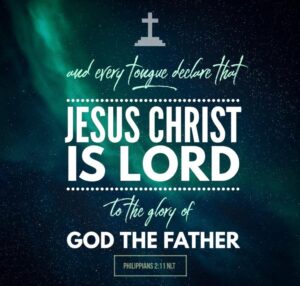FR SHOWRI DAILY REFLECTIONS
Scripture for today...

Matthew 1:18-25
He Will Save His People from Their Sins
Do you hold on to the promises of God at all times, especially when you are faced with uncertainty or adversity? The prophets Jeremiah and Isaiah spoke words of hope in a hopeless situation for Israel. The Davidic dynasty was corrupt and unfit for a Messianic King. Apostates like King Ahaz (2 Kings 16) and weaklings like Zedekiah (Jeremiah 38) occupied the throne of David.
How could God be faithful to his promise to raise up a righteous King who would rule forever over the house of David? The prophets trusted that God could somehow “raise up a righteous shoot” from the stump of Jesse (Isaiah 2:11). Like the prophets we are called “in hope to believe against hope” (Romans 4:18) that God can and will fulfill all his promises.
Mary was found to be with child of the Holy Spirit
Mary had to face an enormous challenge to her faith and trust in God and to the faith of her family and Joseph, the man she chose to marry. She was asked to assume a burden of tremendous responsibility. It had never been heard of before that a child could be born without a natural father.
Mary was asked to accept this miraculous exception to the laws of nature. That required faith and trust in God and in his promises. Second, Mary was not yet married. Pregnancy outside of wedlock was not tolerated in those days. Mary was only espoused to Joseph, and such an engagement had to last for a whole year.
She was asked to assume a great risk. She could have been rejected by Joseph, by her family, by all her own people. Mary knew that Joseph and her family would not understand without revelation from God. She nonetheless believed and trusted in God’s promises.
Joseph believed the angel’s message “that which is conceived in her is of the Holy Spirit”
Joseph, a just and God-fearing man, did not wish to embarrass or punish his espoused wife, Mary when he discovered that she was pregnant. To all appearances she had broken their solemn pledge to be faithful and chaste to one another.
Joseph, no doubt took this troubling matter to God in prayer. He was not hasty to judge or to react with hurt and anger. God rewarded him not only with guidance and consolation, but with the divine assurance that he had indeed called Joseph to be the husband of Mary and to assume a mission that would require the utmost faith, confidence, and trust in Almighty God.
Joseph believed in the divine message to take Mary as his wife and to accept the child in her womb as the promised Messiah.
A model of faith for us
Like Mary, Joseph is a model of faith for us. He is a faithful witness and servant of God’s unfolding plan of redemption. Are you ready to believe in the promises of God, even when faced with perplexing circumstances and what seems like insurmountable problems?
God has not left us alone, but has brought us his only begotten Son, our Lord and Savior Jesus Christ. Let us celebrate Christmas, the feast of the Incarnation, with joyful hearts and let us renew our faith and hope in God and in his redeeming work.
Christmas Novena
Hail, and blessed be the hour and moment
in which the Son of God was born
of the most pure Virgin Mary,
at midnight, in Bethlehem,
in the piercing cold.
In that hour vouchsafe, O my God,
to hear my prayers and grant my desires,
(here mention your request).
through the merits of Our Saviour Jesus Christ,
and of His Blessed Mother. Amen
Third Day (December 18)
Thought:
God so ordained that, at the time when His Son was to be born on this earth, the Roman emperor should issue a decree ordering everyone to go to the place of his origin and there be registered in the census. Thus it came about that, in obedience to this decree, Joseph went to Bethlehem together with his virgin wife when she was soon to have her Child.
Finding no lodging either in the poor inn or in the other houses of the town, they were forced to spend the night in a cave that was used as a stable for animals, and it was here that Mary gave birth to the King of heaven.
If Jesus had been born in Nazareth, He would also, it is true, have been born in poverty; but there He would at least have had a dry room, a little fire, warm clothes and a more comfortable cradle. Yet He chose to be born in this cold, damp cave, and to have a manger for a cradle, with prickly straw for a mattress, in order that He might suffer for us.
Let us enter in spirit into this cave of Bethlehem, but let us enter in a spirit of lively faith. If we go there without faith, we shall see nothing but a poor infant, and the sight of this lovely child shivering and crying on his rough bed of straw may indeed move us to pity.
But if we enter with faith and consider that this Babe is the very Son, God, who for love of us has come down on earth and suffers so much to pay the penalty for our sins, how can we help thanking and loving Him in return?
Prayer:
O Dear Infant Jesus, how could I be so ungrateful and offend Thee so often, if I realized how much Thou hast suffered for me? But these tears which Thou didst shed, this poverty which Thou embracest for love of me, make me hope for the pardon of all the offenses I have committed against Thee.
My Jesus, I am sorry for having so often turned my back on Thee. But now I love Thee above all else. “My God and my all!”
From now on Thou, O my God, shalt be my only treasure and my only good. With Saint Ignatius of Loyola I will say to Thee, “Give me the grace to love Thee; that is enough for me.” I long for nothing else; I want nothing else. Thou alone art enough for me, my Jesus, my life, my love.
O Mary, my Mother, obtain for me the grace that I may always love Jesus and always be loved by Him.
Amen
JESUS I TRUST IN YOU!
Scripture for today...
Matthew 11:28-30
Come to Me and I Will Give You Rest
What kind of yoke does the Lord Jesus have in mind for each one of us? And how can it be good for us? The Jewish people used the image of a yoke to express their submission to God.
They spoke of the yoke of the law, the yoke of the commandments, the yoke of the kingdom, the yoke of God. Jesus says his yoke is “easy”. The Greek word for “easy” can also mean “well-fitting”.
Yokes were tailor-made to fit the oxen well for labor. We are commanded to put on the “sweet yoke of Jesus” and to live the “heavenly way of life and happiness”. Oxen were yoked two by two. Jesus invites each one of us to be yoked with him, to unite our life with him, our will with his will, our heart with his heart.
Jesus carries our burdens with us
Jesus also says his “burden is light”. There’s a story of a man who once met a boy carrying a smaller crippled lad on his back. “That’s a heavy load you are carrying there,” exclaimed the man. “He ain’t heavy; he’s my brother!” responded the boy.
No burden is too heavy when it’s given in love and carried in love. When we yoke our lives with Jesus, he also carries our burdens with us and gives us his strength to follow in his way of love. Do you know the joy of resting in Jesus’ presence and walking daily with him along the path he has for you?
In the Advent season we celebrate the coming of the Messiah King who ushers in the reign of God. The prophets foretold that the Messiah would establish God’s kingdom of righteousness, peace, and joy. Those who put their trust in God and in the coming of his kingdom receive the blessings of that kingdom – peace with God and strength for living his way of love, truth, and holiness (Isaiah 40).
Jesus fulfills all the Messianic hopes and promises of God’s kingdom. That is why he taught his disciples to pray, “thy kingdom come, thy will be done, on earth as it is in heaven” (Matthew 6:10). In his kingdom sins are not only forgiven but removed, and eternal life is poured out for all its citizens. This is not a political kingdom, but a spiritual one.
Freed from the burden of sin and guilt
The yoke of Christ’s kingdom, his kingly rule and way of life, liberates us from the burden of guilt and disobedience. Only the Lord Jesus can lift the burden of sin and the weight of hopelessness from us. Jesus used the analogy of a yoke to explain how we can exchange the burden of sin and despair for a yoke of glory, freedom, and joy with him.
The yoke which the Lord Jesus invites us to embrace is his way of power and freedom to live in love, peace, and joy as God’s sons and daughters. Do you trust in God’s love and truth and submit to his will for your life?
✡️✡️🙏🏻Prayer🙏🏻✡️✡️
“Lord Jesus, inflame my heart with love for you and for your ways and help me to exchange the yoke of rebellion for the sweet yoke of submission to your holy and loving word. Set me free from the folly of my own sinful ignorance and rebellious pride that I may wholly desire what is good and in accord with your will.” Amen
The Life Story of the Saint
Saint Damasus I
304 – December 11, 384
To his secretary Saint Jerome, Damasus was “an incomparable person, learned in the Scriptures, a virgin doctor of the virgin Church, who loved chastity and heard its praises with pleasure.”
Damasus seldom heard such unrestrained praise. Internal political struggles, doctrinal heresies, uneasy relations with his fellow bishops and those of the Eastern Church marred the peace of his pontificate.
The son of a Roman priest, possibly of Spanish extraction, Damasus started as a deacon in his father’s church, and served as a priest in what later became the basilica of San Lorenzo in Rome. He served Pope Liberius (352-366) and followed him into exile.
When Liberius died, Damasus was elected bishop of Rome; but a minority elected and consecrated another deacon, Ursinus, as pope.
The controversy between Damasus and the antipope resulted in violent battles in two basilicas, scandalizing the bishops of Italy. At the synod that Damasus called on the occasion of his birthday, he asked them to approve his actions.
The bishops’ reply was curt: “We assembled for a birthday, not to condemn a man unheard.” Supporters of the antipope even managed to get Damasus accused of a grave crime—probably sexual—as late as A.D. 378. He had to clear himself before both a civil court and a Church synod.
As pope, his lifestyle was simple in contrast to other ecclesiastics of Rome, and he was fierce in his denunciation of Arianism and other heresies. A misunderstanding of the Trinitarian terminology used by Rome threatened amicable relations with the Eastern Church, and Damasus was only moderately successful in dealing with that challenge.
During his pontificate, Christianity was declared the official religion of the Roman state, and Latin became the principal liturgical language as part of the pope’s reforms.
His encouragement of Saint Jerome’s biblical studies led to the Vulgate, the Latin translation of Scripture which 12 centuries later the Council of Trent declared to be “authentic in public readings, disputations, preaching.”
Reflection
The history of the papacy and the Church is inextricably mixed with the personal biography of Damasus. In a troubled and pivotal period of Church history, he stands forth as a zealous defender of the faith who knew when to be progressive and when to entrench.
Damasus makes us aware of two qualities of good leadership: alertness to the promptings of the Spirit, and service. His struggles are a reminder that Jesus never promised his Rock protection from hurricane winds nor his followers immunity from difficulties. His only guarantee is final victory.
Blessings from
Fr Showri R Narra
JESUS I TRUST IN YOU!
Scripture for today...
Luke 10:17-24
Your Names Are Written in Heaven
Do you know and experience in your personal life the joy of the Lord? The Scriptures tell us that “the joy of the Lord is our strength” (Nehemiah 8:10). Why does Jesus tell his disciples to not take joy in their own successes, even spiritual ones?
Jesus makes clear that the true source of our joy is God himself, and God alone. Regardless of the circumstances, in good times and bad times, in success or loss, God always assures us of victory in the Lord Jesus Christ.Jesus assures his disciples that he has all power over all evil, including the power of Satan and the evil spirits (demons) – the fallen angels who rebelled against God and who hate men and women who have been created in God’s image and likeness (Genesis 1:29). Jesus told his disciples that he came into the world to overthrow the evil one (John 12:31).
That is why Jesus gave his disciples power over Satan and his legion of demons (rebellious angels). We, too, as disciples of Jesus have been given spiritual authority and power for overcoming the works of darkness and evil (1 John 2:13-14). Self-centered pride closes the mind to God’s revelation and wisdomJesus thanks the Father in heaven for revealing to his disciples the wisdom and knowledge of God. What does Jesus’ prayer tell us about God and about ourselves?
First, it tells us that God is both Father and Lord of earth as well as heaven. He is both Creator and Author of all that he has made, the first origin of everything and transcendent authority, and at the same time, goodness and loving care for all his children. All fatherhood and motherhood is derived from him (Ephesians 3:14-15). Jesus’ prayer also contains a warning that pride can keep us from the love and knowledge of God. What makes us ignorant and blind to the things of God? Sinful pride springs from being self-centered and holding an exaggerated view of oneself. Pride closes the mind to God’s truth and wisdom for our lives. Lucifer, who was once the prince of angels, fell into pride because he did not want to serve God but wanted to be equal with God.
Through his arrogant pride he led a whole host of angels to rebel against God. That is why the rebellious angels (whom Scripture calls evil spirits, devils, and demons) were cast out of heaven and thrown down to the earth. They seek to lead us away from God through pride and rebellion.How can we guard our hearts from sinful pride and rebellion? The virtue of humility teaches us to put our trust in God and not in ourselves. God gives strength and help to those who put their trust in him.
Humility is the only true remedy against sinful pride. True humility, which is very different from the feelings of inferiority or low self-esteem, leads us to a true recognition of who we are in the sight of God and of our dependence on God. Humility is the only soil where God’s grace and truth can take rootJesus contrasts intellectual pride with child-like simplicity and humility.
The simple of heart are like “babes” or “little children” in the sense that they see purely without pretense or falsehood and acknowledge their dependence and trust in one who is greater, wiser, and more trustworthy. They seek one thing – the “summum bonum” or “greatest good” who is God himself. Simplicity of heart is wedded with humility, the queen of virtues, because humility inclines the heart towards grace and truth. Just as pride is the root of every sin and evil inclination, so humility is the only soil in which the grace of God can take root. It alone takes the right attitude before God and allows him as God to do all. God opposes the proud, but gives grace to the humble(Proverbs 3:34, James 4:6).
The grace of Christ-like humility inclines us towards God and disposes us to receive God’s wisdom and help. Allow the Lord Jesus to heal the wounds of pride in your heart and to fill you with the joy of the Holy Spirit who transforms us into the likeness of Christ himself – who is meek and humble of heart (Matthew 11:29).Nothing can give us greater joy than the knowledge that we are God’s beloved and that our names are written in heaven. The Lord Jesus has ransomed us from slavery to sin, Satan, and death and has adopted us as God’s beloved sons and daughters. That is why we no longer belong to ourselves – but to God alone. Do you seek to be like Jesus Christ in humility and simplicity of heart? The Lord Jesus wants us to know him personally – experientiallyJesus makes a claim which no one would have dared to make: He is the perfect revelation of God – he and the Father are perfectly united in a bond of unbreakable love and fidelity.
One of the greatest truths of the Christian faith is that we can know the living God. Our knowledge of God is not simply limited to knowing something about God, but we can know God personally.
The essence of Christianity, and what makes it distinct from Judaism and other religions, is the knowledge of God as our Father. Jesus makes it possible for each of us to personally know God as our Father. Saint Augustine of Hippo wrote: “God loves each of us as if there were only one of us to love.” Seek God with expectant faith and trustTo see Jesus is to see what God is like. In Jesus we see the perfect love of God – a God who yearns over men and women, who cares intensely for them and who shows them unceasing kindness, mercy, and forgiveness. That is why the Father sent his only begotten Son who laid down his life for us on the cross.
Jesus taught his followers to confidently pray to the Father with expectant faith, “Our Father who art in heaven …give us this day our daily bread.” Do you believe in your heavenly Father’s care and love for you and do you pray with confident trust and hope that he will give you what you need to live as his son or daughter?
🙏🏻Prayer🙏🏻
“Most High and glorious God, enlighten the darkness of our hearts and give us a true faith, a certain hope and a perfect love. Give us a sense of the divine and knowledge of yourself, so that we may do everything in fulfillment of your holy will; through Jesus Christ our Lord. (Prayer of Francis of Assisi, 1182-1226)” Amen
🟢The Life story of the Saint🟢
Saint Maria Faustina Kowalska
August 25, 1905
October 5, 1938
Saint Faustina’s name is forever linked to the annual feast of the Divine Mercy, the Divine Mercy chaplet, and the Divine Mercy prayer recited each day at 3 p.m. by many people.
Born in what is now west-central Poland, Helena Kowalska was the third of 10 children. She worked as a housekeeper in three cities before joining the Congregation of the Sisters of Our Lady of Mercy in 1925. She worked as a cook, gardener and porter in three of their houses.
In addition to carrying out her work faithfully, generously serving the needs of the sisters and the local people, Sister Faustina also had a deep interior life. This included receiving revelations from the Lord Jesus, messages that she recorded in her diary at the request of Christ and of her confessors.
At a time when some Catholics had an image of God as such a strict judge that they might be tempted to despair about the possibility of being forgiven, Jesus chose to emphasize his mercy and forgiveness for sins acknowledged and confessed.
“I do not want to punish aching mankind,” he once told Saint Faustina, “but I desire to heal it, pressing it to my merciful heart.” The two rays emanating from Christ’s heart, she said, represent the blood and water poured out after Jesus’ death.
Because Sister Maria Faustina knew that the revelations she had already received did not constitute holiness itself, she wrote in her diary: “Neither graces, nor revelations, nor raptures, nor gifts granted to a soul make it perfect, but rather the intimate union of the soul with God. These gifts are merely ornaments of the soul, but constitute neither its essence nor its perfection.
My sanctity and perfection consist in the close union of my will with the will of God.” Sister Maria Faustina died of tuberculosis in Krakow, Poland, on October 5, 1938. Pope John Paul II beatified her in 1993, and canonized her seven years later.
Reflection
Devotion to God’s Divine Mercy bears some resemblance to devotion to the Sacred Heart of Jesus. In both cases, sinners are encouraged not to despair, not to doubt God’s willingness to forgive them if they repent. As Psalm 136 says in each of its 26 verses, “God’s love [mercy] endures forever.”
Blessings from
Fr Showri R Narra
JESUS I TRUST IN YOU!
Scripture for today...
Luke 10:13-16
He Who Hears You Hears Me
If Jesus were to visit your community today, what would he say? Would he issue a warning like the one he gave to Chorazin and Bethsaida? And how would you respond?
Wherever Jesus went he did mighty works to show the people how much God had for them. Chorazin and Bethsaida had been blessed with the visitation of God.
They heard the good news and experienced the wonderful works which Jesus did for them. Why was Jesus upset with these communities? The word woe is also translated as alas. It is as much as an expression of sorrowful pity as it is of anger. Jesus calls us to walk in the way of truth and freedom – justice and holinessWhy does Jesus lament and issue a stern warning? The people who heard the Gospel here very likely responded with indifference.
Jesus upbraids them for doing nothing! Repentance demands change – a change of heart and way of life. God’s word is life-giving and it saves us from destruction – the destruction of soul as well as body.
Jesus’ anger is directed toward sin and everything which hinders us from doing the will of God and receiving his blessing. In love he calls us to walk in his way of truth and freedom, grace and mercy, justice and holiness. Do you receive his word with faith and submission or with doubt and indifference?
Christ speaks through the disciples, by Cyril of Alexandria (376-444 AD)
“Christ gives those who love instruction the assurance that whatever is said concerning him by the holy apostles or evangelists is to be received necessarily without any doubt and to be crowned with the words of truth. He who hears them, hears Christ.
For the blessed Paul also said, ‘You desire proof that Christ is speaking in me’ (2 Corinthians 13:3). Christ himself somewhere also said to the holy disciples, ‘For it is not you that speak, but the Spirit of your Father that speaks in you’ (Matthew 10:20).
Christ speaks in them by the consubstantial Spirit. If it is true, and plainly it is, that they speak by Christ, how can they err? He affirms that he who does not hear them, does not hear Christ, and that he who rejects them rejects Christ, and with him the Father.”(excerpt from COMMENTARY ON LUKE, HOMILY 63)
🙏🏻Prayer🙏🏻
“Lord Jesus, give me the child-like simplicity and purity of faith to gaze upon your face with joy and confidence in your all-merciful love. Remove every doubt, fear, and proud thought which would hinder me from receiving your word with trust and humble submission.” Amen
🟢The Life story of the Saint🟢
Saint Francis of Assisi
1181 or 1182
October 3, 1226
The patron saint of Italy, Francis of Assisi was a poor little man who astounded and inspired the Church by taking the gospel literally—not in a narrow fundamentalist sense, but by actually following all that Jesus said and did, joyfully, without limit, and without a sense of self-importance.
Serious illness brought the young Francis to see the emptiness of his frolicking life as leader of Assisi’s youth. Prayer—lengthy and difficult—led him to a self-emptying like that of Christ, climaxed by embracing a leper he met on the road.
It symbolized his complete obedience to what he had heard in prayer: “Francis! Everything you have loved and desired in the flesh it is your duty to despise and hate, if you wish to know my will. And when you have begun this, all that now seems sweet and lovely to you will become intolerable and bitter, but all that you used to avoid will turn itself to great sweetness and exceeding joy.”
From the cross in the neglected field-chapel of San Damiano, Christ told him, “Francis, go out and build up my house, for it is nearly falling down.” Francis became the totally poor and humble workman.
He must have suspected a deeper meaning to “build up my house.” But he would have been content to be for the rest of his life the poor “nothing” man actually putting brick on brick in abandoned chapels.
He gave up all his possessions, piling even his clothes before his earthly father—who was demanding restitution for Francis’ “gifts” to the poor—so that he would be totally free to say, “Our Father in heaven.”
He was, for a time, considered to be a religious fanatic, begging from door to door when he could not get money for his work, evoking sadness or disgust to the hearts of his former friends, ridicule from the unthinking.
But genuineness will tell. A few people began to realize that this man was actually trying to be Christian. He really believed what Jesus said: “Announce the kingdom! Possess no gold or silver or copper in your purses, no traveling bag, no sandals, no staff” (Luke 9:1-3).
Francis’ first rule for his followers was a collection of texts from the Gospels. He had no intention of founding an order, but once it began he protected it and accepted all the legal structures needed to support it.
His devotion and loyalty to the Church were absolute and highly exemplary at a time when various movements of reform tended to break the Church’s unity. Francis was torn between a life devoted entirely to prayer and a life of active preaching of the Good News.
He decided in favor of the latter, but always returned to solitude when he could. He wanted to be a missionary in Syria or in Africa, but was prevented by shipwreck and illness in both cases. He did try to convert the sultan of Egypt during the Fifth Crusade.
During the last years of his relatively short life, he died at 44, Francis was half blind and seriously ill. Two years before his death he received the stigmata, the real and painful wounds of Christ in his hands, feet and side.
On his deathbed, Francis said over and over again the last addition to his Canticle of the Sun, “Be praised, O Lord, for our Sister Death.” He sang Psalm 141, and at the end asked his superior’s permission to have his clothes removed when the last hour came in order that he could expire lying naked on the earth, in imitation of his Lord.
Reflection
Francis of Assisi was poor only that he might be Christ-like. He recognized creation as another manifestation of the beauty of God. In 1979, he was named patron of ecology. He did great penance—apologizing to “Brother Body” later in life—that he might be totally disciplined for the will of God.
Francis’ poverty had a sister, Humility, by which he meant total dependence on the good God. But all this was, as it were, preliminary to the heart of his spirituality: living the gospel life, summed up in the charity of Jesus and perfectly expressed in the Eucharist.
Saint Francis of Assisi is the Patron Saint of:
AnimalsArchaeologistsEcologyItalyMerchantsMessengersMetal Workers
Blessings from
Fr Showri R Narra
JESUS I TRUST IN YOU!
Scripture for today...
Matthew 18:1-5, 10
Their Angels Behold the Father in Heaven
JESUS I TRUST IN YOU!
Scripture for today...
🙏🏻Prayer🙏🏻
🟢The Life story of the Saint🟢
JESUS I TRUST IN YOU!
Scripture for today...
Luke 9:46-50
Jesus Perceived the Thought of Their Hearts
Are you surprised to see the disciples of Jesus arguing about who is the greatest among them? Don’t we do the same thing? The appetite for glory and greatness seems to be inbred in us. Who doesn’t cherish the ambition to be “somebody” whom others admire rather than a “nobody”?
Even the psalms speak about the glory God has destined for us. “You have made them a little lower than God, and crowned them with glory and honor” (Psalm 8:5). Jesus made a dramatic gesture by placing a child next to himself to show his disciples who really is the greatest in the kingdom of God. What can a little child possibly teach us about greatness? Children in the ancient world had no rights, position, or privileges of their own. They were socially at the “bottom of the rung” and at the service of their parents, much like the household staff and domestic servants.
What is the significance of Jesus’ gesture? Jesus elevated a little child in the presence of his disciples by placing the child in a privileged position of honor at his right side. It is customary, even today, to seat the guest of honor at the right side of the host.
Who is the greatest in God’s kingdom? The one who is humble and lowly of heart – who instead of asserting their rights willingly empty themselves of pride and self-seeking glory by taking the lowly position of a servant or child. Jesus, himself, is our model. He came not to be served, but to serve (Matthew 20:28). Paul the Apostles states that Jesus “emptied himself and took the form of a servant” (Philippians 2:7).
Jesus lowered himself (he whose place is at the right hand of God the Father) and took on our lowly nature that he might raise us up and clothe us in his divine nature. “God opposes the proud, but gives grace to the humble” (James 4:6).
If we want to be filled with God’s life and power, then we need to empty ourselves of everything which stands in the way – pride, envy, self-seeking glory, vanity, and possessiveness. God wants empty vessels so he can fill them with his own glory, power, and love (2 Corinthians 4:7). Are you ready to humble yourself and to serve as Jesus did?
🙏🏻Prayer🙏🏻
“Lord Jesus, your grace knows no bounds. You give freely to the humble of heart and you grant us freedom to love and serve others selflessly. May my love for you express itself in an eagerness to do good for others.” Amen
JESUS I TRUST IN YOU!
Scripture for today...
Mark 9:38-43,45, 47-48
Any One Who Does a Mighty Work in My Name
Today, the twenty sixth Sunday of ordinary time, we thank God who freely gives his spirit to all men. Through God’s free gift, people of all nations can resist evil and manifest His true Spirit in their lives and actions. Today’s first reading and gospel are similar in many ways. They remind us that God can freely choose and equip whoever he wishes.
In the first reading, we see men who remained in the “camp,” prophesying in the power of God’s Spirit. In the gospel, we equally see men outside the fold of Christ’s disciples preaching and casting out demons both in the power of the Holy Spirit and in the name of Jesus Christ. Consequently, we see the zealous and envious disciples getting afraid and worried.
They were afraid that these men outside their fold whom the Lord chose and anointed with His spirit were threats to their mission and position. So, instead of seeing them as fellow workers in God’s mission, they became jealous and despised them. They thought that God’s spirit and mission solely belongs to them. Unfortunately, they were wrong.
Interestingly, Moses and Jesus refused to yield to the fears, jealousy and malicious request of their disciples to stop them. Being filled with the spirit of God themselves, they wisely discerned and knew that these men were genuine. Their mission is in line with the will of God, that all men may receive His spirit and preach the good news.
Hence, Moses responded, “If only the whole people of the Lord were prophets and, the Lord gave his Spirit to them all.” While Jesus told his disciples, “You must not stop him. No one who works a miracle in my name is likely to speak evil of me.”
So, for Moses and Jesus, it was a good development and they were against the spirit of envy and oppression.
So, today James warns against oppression, and injustices of all kind against the weak, the poor and those who God has freely chosen.
This is especially, against those who do not belong to our, group, or class. We should not strangle the true spirit of God at work in them. Rather, we should help them to advance and grow physically and spiritually.
There are many lessons for us from today’s readings. First, God can choose and use anyone he wishes for his mission. Second, He gives his Spirit for the edification of his church.
Third,nothing (not even the devil), can stop whoever God truly anoints for his mission. So, when Christ says that: “The gate of hell shall not prevail against the Church” (Mt 16:18), He means that the Spirit of God is upon His church. It shall last as long as God wishes.
Fourth and most important, we must not be jealous or envious of the gift of others. Rather, we should see one another (especially, those that God has truly called) as companions in God’s mission.
At times, we (including priests, religious), are guilty of this capital sin
We are often jealous of those that the Lord has chosen for a particular mission and need of His church to the extent that we try to strangle their mission and efforts. We do this by ignorantly thinking (as Saul did in Acts 9), that we are defending God and His Church.
Surely, this is a bit tricky and difficult. Does it mean that every spirit is true? Certainly no, Especially, now that there are many false and self-made pastors, prophets and wolves in sheep’s garment.
However, there is no cause for alarms! All we need to do is humbly and carefully, “discern every spirit” (I Jn4:1). Christ’s standard of “by their fruits you shall know them” (Mt 7:16) must be wisely followed for this discernment. Also, the universal rule that, “not all that glitters is gold” must be diligently observed.
Finally, this requires wisdom and it is the Spirit of God that gives this wisdom. Only those who are filled, and are docile to the Holy Spirit can discern and distinguish between the true and the false spirit. So, we must be very careful not to despise those that the Lord has freely and truly chosen, and filled with his spirit for edification of his church.
🙏🏻Prayer🙏🏻
“Lord Jesus, fill me with your Holy Spirit that I may radiate the joy of the Gospel to others. May your light and truth shine through me that others may find new life and joy in you, and freedom from sin and oppression.” Amen











